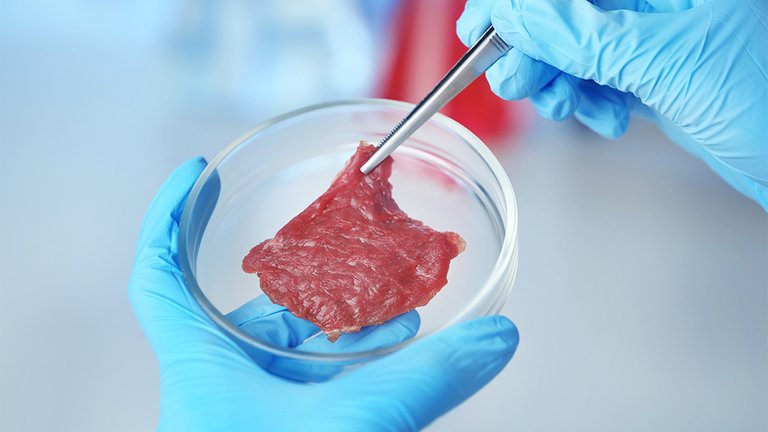I’m constantly thinking about the future of planet Earth and the future of food and my obsession with ‘alt-meat’ (plant-based and to a lesser extent ‘cultivated’, or cell-based, meat) and climate change fuels these thoughts. A few months ago I wrote a post about how reading two books by Jonathan Safran Moer completely changed my views on animal agriculture. Since then I’ve dived deeper into this space by seeking out lots of podcasts on these topics.

I’ve curated some takeaways into three categories -
The ‘tipping point’
Recently we had some friends with two kids visit and stay with us for a few days. We don’t have visitors that often and living in close quarters with others showed just how different our day-to-day living is from normies. We’re all aware of climate change but climate change action is a hard sell - and I could see it with our friends. They are both educated people but sustainable choices are just not a priority in their lives, at least not to the extent they are for me. Global emissions targets seem so far away. It’s forever this abstract out-of-reach concept. There is a sense of hopelessness that individually we can’t make a difference.
This ‘tipping point’ - or what Jim Mellon calls ‘griddle parity’ - is the hope. We’ll arrive at tipping point when alt-meats taste better and cost less than meat. The availability of these products at scale will bring about rapid change in food consumption. There will be no reason for humans to slaughter animals for their meat. There will be no reason to clear anymore land for animal agriculture. Similarly there will be a tipping point in the not too distant future where electric cars will make sense on every metric.
Plant-based versus cell-based meats
There is a widely-held view that cell-based meats have a certain ‘Ick’-factor, ie. ‘Eww, gross! I wouldn’t eat a chicken wing that’s been grown in a lab. That’s weird!’. Yet you would eat a chicken wing from a battery-farmed inhumanely slaughtered chicken. Hmm, go figure! It’s more about humans’ innate aversion to change I think.
Also averse to change are governments and their subsidising of animal agriculture at the expense of alt-meats investment. People don’t bat an eyelid at government subsidies for renewal energy. Billions (if not trillions) of dollars in government subsidies have gone towards the growth of renewable energy - yet government subsidies for the alt-meat industry in in the tens to (possibly) twenties of millions of dollars (source: Sam Harris podcast). More of a helping hand will speed up the push for griddle parity.
Will cell-based meats disrupt plant-based meats? Jim Mellon thinks so but take that with a grain of salt as he is heavily invested in several cell-based meat startups. Currently one problem with plant-based burgers are the amount of ingredients that go into them. According to Mellon, in time cell-based meats will be cheaper to produce than plant-based. However at this stage that’s a long way off. On the texture (or ‘structure’) of meat, Eben Bayer believes that plant-based and cell-based meats will be complimentary. It doesn’t make much sense to culture meat for a steak to then mince for burgers. Plant-based is the better option for burgers. That’s not to say the likes of Beyond Meat and Impossible Foods aren’t set on making their own plant-based steaks!
The fishing industry
A lot of what was in ‘Seaspiracy’ I already knew from reading ‘Eating animals’ by Safran Moer but one of the questions mrshill and I had after we watched the Netflix documentary and then let it sink in for a couple of days was - ‘What’s worse? Eating land-based meats (chicken, beef, pork) or fish?’ Of course, before answering that question you would need to clarify if we’re talking worse for the animal, worse for the environment or both. Since becoming vegetarian late last year, I just assumed that if I was to eat out at a restaurant with no vegetarian option that I would go for the fish option (fish n chips!!!) but now I am not so sure. The fishing industry (ocean and farmed) absolutely stinks! I recommend you watch Seaspiracy if you’re not up to speed with the shocking state of commercial fishing.
Another thing I am obsessed with is kelp - a food source from the ocean that is good for us and the environment. I’ll share some extended thoughts on kelp in a future post.
More information (my inspiration)
What I have been listening to and watching lately -
- Sam Harris - Food, Climate and Pandemic Risk
- We Study Billionaires - The Future of Food with Jim Mellon
- Synbio-beta - The Mycelium Revolution: How a mushroom can make food, plastic, and more - with Eben Bayer of Ecovative
- Eat for the planet - Seth Goldman (Beyond Meat) on innovation and scaling
- Netflix - Seaspiracy